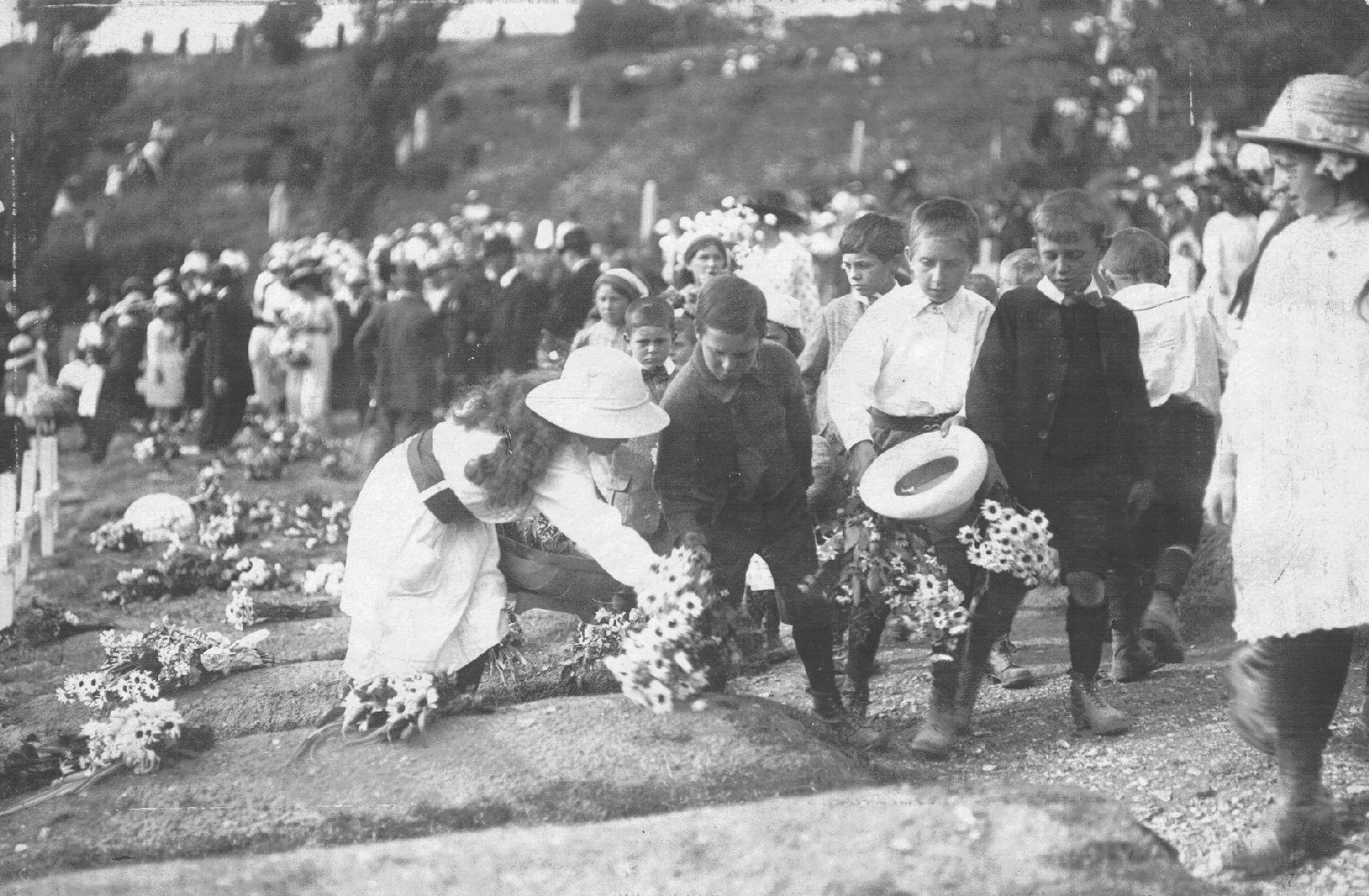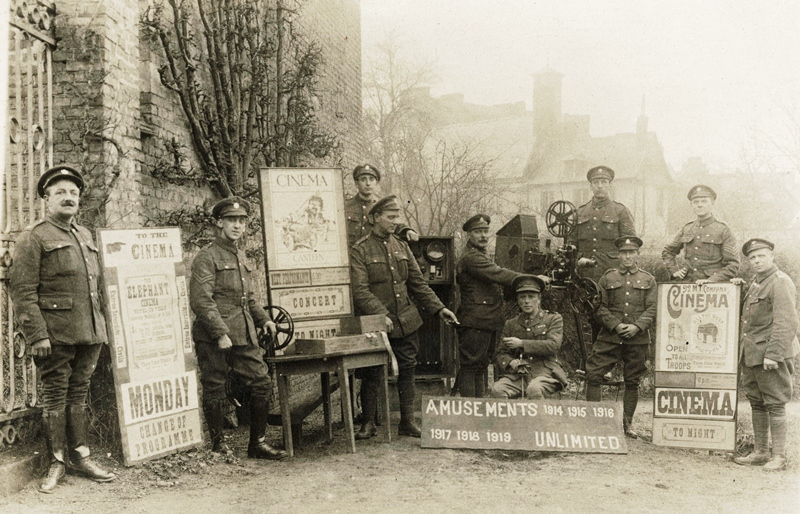Gateways to the First World War is a centre for public engagement with the First World War centenary funded by the Arts and Humanities Research Council (AHRC). The aim of the Gateways team is to encourage and support public interest in the centenary of the First World War through a range of events and activities such as open days and study days, advice on access to materials and expertise, and signposting for other resources and forms of support. The Centre is managed by the University of Kent in partnership with the Universities of Essex, Portsmouth and Leeds. It also has close links with organisations such as the Imperial War Museum, National Maritime Museum and the War Memorials Trust.
 Children laying flowers in Shorncliffe Military Ceremony in Kent on the first Canada Day
Children laying flowers in Shorncliffe Military Ceremony in Kent on the first Canada Day
The Centre is led by Professor Mark Connelly at the University of Kent with support from Dr Brad Beaven (Portsmouth), Dr Helen Brooks (Kent), Professor Alison Fell (Leeds), Dr Emma Hanna (Kent) and Professor Lucy Noakes (Essex) along with a host of other organisations. The Gateways team are all specialists in the field of First World War studies and details of their backgrounds can be found here.
Gateways can help you explore the following areas:
- Memorials, commemoration and memory
- Life on the Home and Fighting Fronts
- The medical history of the First World War
- Wartime propaganda and popular culture
- Maritime and naval history
- Operational and military history
Gateways is running a number of events relating to the First World War, including talks, open days and study days; please keep an eye on our events page and follow us on Facebook and Twitter for up-to-date news on the Centre.
 British Army Cinema Group
British Army Cinema Group
The AHRC Engagement Centres
Gateways to the First World War is one of five AHRC-funded public engagement centres. The five centres cooperate closely to provide support for a wide range of community engagement activities across the UK, connecting academic and public histories of the First World War as part of the commemoration of the War’s centenary
University of Hertfordshire, in collaboration with (amongst others) Universities of Central Lancashire, Lincoln, Exeter and Essex.
How did war affect daily life between 1914 and 1918; what was the legacy of the conflict? This centre aims to encourage community research into questions such as these and has particular expertise in: Food and farming; theatre and entertainment; Conscientious objection and military tribunals; Supernatural beliefs; Childhood; Family relationships; Cartoons, trench publications and popular culture.
firstworldwar@herts.ac.uk
University of Nottingham in collaboration with (amongst others), Oxford Brookes, Manchester Metropolitan, Nottingham Trent and Derby Universities.
This centre is particularly interested in developing commemorative projects with national, faith and other emerging communities whose histories are rarely considered, and for whom the traditional Armistice Day celebrations may have strikingly different meanings.
The centre’s key thematic interests include: Migration and displacement; The experiences of 'others', from countries and regions within Europe, Asia and the Commonwealth; Impact and subsequent legacies of the war on diverse communities within Britain; Remembrance and commemoration; Identity and faith.
HiddenHistories@nottingham.ac.uk
Queen’s University Belfast, in collaboration with (amongst others) Universities of Ulster, Newcastle and Wales and Goldsmiths College University of London
Living Legacies is exploring the enduring impacts and legacies of the First World War and how it lives on in the twenty-first century. The Centre is interested in helping communities to: Tell their stories and share these stories with others; Rediscover the forgotten First World War heritage in our landscapes; Find out why and where people moved as a result of the war; Express stories about the conflict through drama and theatre.
livinglegacies@qub.ac.uk
The University of Birmingham, in collaboration with (amongst others) Cardiff, Glasgow, Manchester Metropolitan, Birmingham City, Wolverhampton and Worcester Universities & Newman University College.
The centre offers research support and guidance for community groups around the First World War in general and in particular around the following themes: Belief and the Great War; Commemoration; Childhood; Cities at War; Gender and the Home Front.
voices@contacts.bham.ac.uk
The Research Network
In addition to our core team, Gateways is supported by a national network of experts who can offer specific advice and guidance on your project. If you are looking for advice on a particular area of research we will do our best to put you in touch with someone with expertise in that area. As well as First World War history, members of our network have specialist knowledge of literature, language, archaeology, performance arts and digital technologies. Network members may be able to help in a range of different ways, from providing advice on sources and archives, to playing a mentoring role in projects and applications for funding.
Find out more about our network members here.
Gateways to the First World War has a Takedown Policy which can be viewed here.